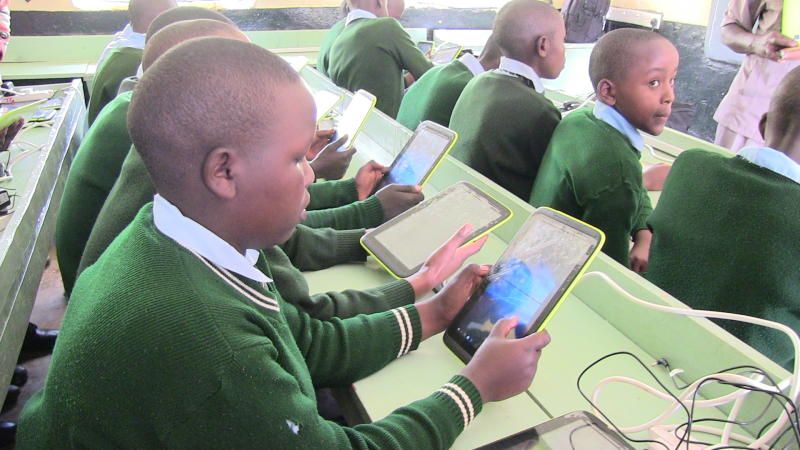
Students of Gathima Primary School have to brave dusty floors during dry seasons and when it rains leaking roofs to follow lessons. Sometimes, learners are forced to shift from one room to another to have some semblance of learning. The classrooms have no windows for ventilation and are congested, taking away excitement that must come with introduction of e-learning.
The young learners also stand the risk of being electrocuted. Cables recently used to connect electricity were left hanging on mud walled classrooms characterised by floors that are submerged in water.